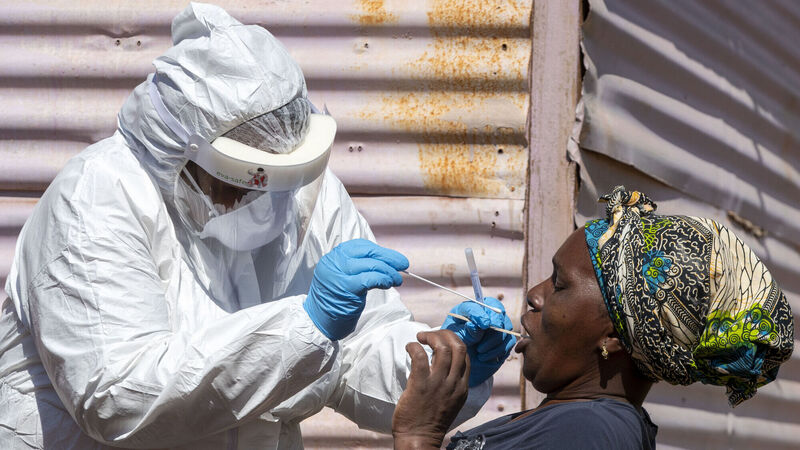The longer we delay global vaccination, the greater the harm

As Omicron sweeps through our society, imagine how it would feel if only 5.8% of the population and just 27% of frontline health workers were fully vaccinated. That is the devastating reality for many African countries, and it could have been avoided. File picture: AP /Themba Hadebe
This temporary suspension of intellectual property restrictions is vital to scale up the manufacture of vaccines and reach the levels of vaccination needed to reduce deaths and get ahead of the virus.













